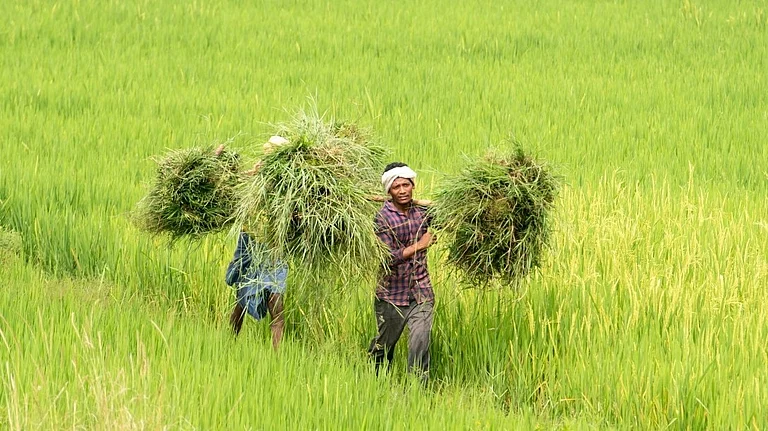
US Customs and Border Protection has opened a formal probe against Waaree Energies.
The Mumbai-based company is accused of evading anti-dumping and countervailing duties.
Waaree’s shares on the NSE fell nearly 7%, dropping 236 points to ₹3,209 during intraday trade.
The US Customs and Border Protection (CBP) agency has launched a formal probe against solar module maker Waaree Energies over alleged evasion of anti-dumping and countervailing duties. The company confirmed the investigation on Friday, stating that it is cooperating with the authorities.
However, the news triggered a sharp fall in the company's shares on the NSE, which dropped nearly 7%. During intraday trade, the stock fell 236 points to ₹3,209 per share.
"Waaree has in the past cooperated with US investigations and will continue to cooperate in ongoing investigations. We are a responsible corporate citizen in every country we operate in and abide by all applicable local laws and regulations," the company said in an exchange filing.
What Is Waaree Accused Of?
The Mumbai-based solar module maker has been accused of labeling products imported from China as Indian to evade tariffs. These tariffs were imposed during the first Trump administration under Section 201 on imported solar cells and modules. The initial rate was 30%, gradually declining to 15% over four years under the original safeguard schedule.
According to reports by US news agencies, the American Alliance for Solar Manufacturing Trade Committee, a coalition of domestic solar manufacturers, had filed a complaint against Waaree earlier this year.
The US Customs and Border Protection disclosed the probe in a memo sent to attorneys representing Waaree and the trade committee. The agency stated that it has “reasonable suspicion” that Waaree failed to declare some imports as originating from China and other Asian countries.
The agency has also asked Waaree to submit cash deposits while the probe continues to protect US revenue.
Reuters report says that US imports of Indian solar panels have risen sharply over the past two years, following Commerce Department tariffs on four Southeast Asian nations that previously supplied most of America’s panels.
Notably, a report by Yes Securities on the company in August said that its exports saw a surge between FY22 and FY24, although last year only 17% of its revenue came from exports.
"The United States (US) is the key export destination, accounting for about 99% of total exports, while other countries such as Yemen, the Philippines, Italy, and Japan collectively contributed the remaining," the brokerage said.
In terms of raw materials, the company has undertaken some backward integration but still remains heavily dependent on imports from China and other Southeast Asian countries.
"As of FY24, about 90% of the company’s raw materials were imported, amounting to ₹78 billion, with China being the dominant supplier, contributing about 54% of total imports," said Yes Securities, adding that the remaining imports are sourced from Malaysia, Thailand, and other Asian countries.
Waaree has claimed that the United States is a key manufacturing base for its expansion ambitions.
"Our subsidiary Waaree Solar Americas has a 1.6GW module manufacturing facility in Texas, which is being expanded to 3.2GW. Recently, our US subsidiary also acquired assets of Meyer Burger, US, to further expand manufacturing. We are committed to building our manufacturing footprint in the US," the exchange filing noted.
US photovoltaic equipment makers have long alleged unfair subsidies and dumping by Chinese firms. In August, the Commerce Department launched a new trade investigation into modules from Indonesia, Laos, and India following complaints from domestic producers. Earlier this year, steep duties were imposed on solar equipment from Vietnam, Cambodia, Malaysia, and Thailand.

































